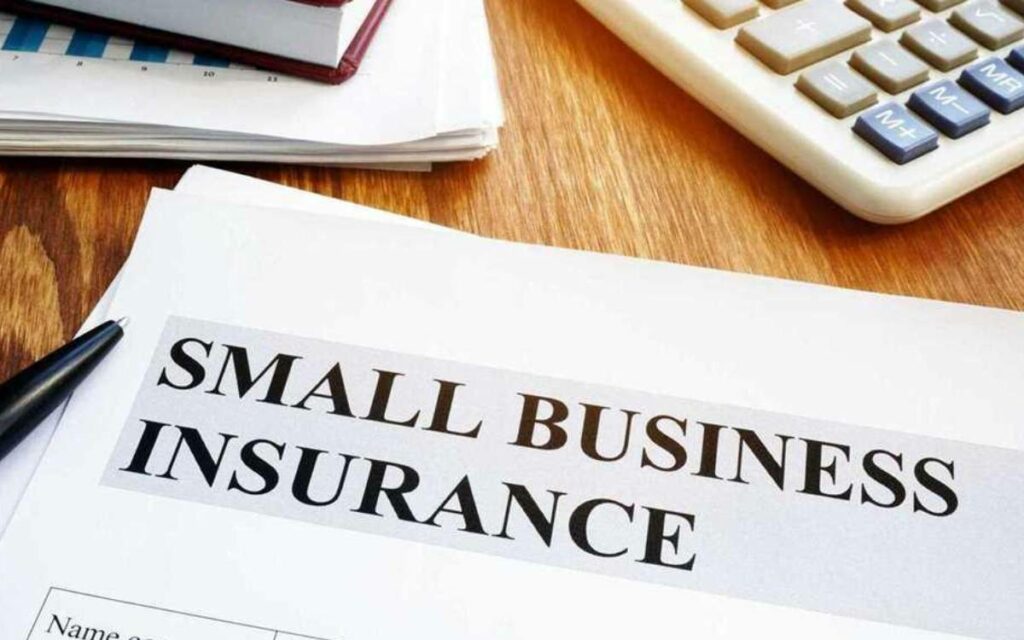Small Business Insurance
Small businesses are the backbone of the economy, but they are also more vulnerable to financial losses than larger businesses. Unexpected events such as fires, theft, lawsuits, and natural disasters can quickly devastate a small business. That’s why it’s so important for small businesses to have adequate insurance coverage.
Small business insurance can help protect your business from a wide range of risks, including:
- Property damage and theft: This type of insurance covers your business’s physical assets, such as buildings, equipment, and inventory.
- Liability: This type of insurance covers your business if you are sued for causing injury or property damage to others.
- Business interruption: This type of insurance covers lost income if your business is unable to operate due to a covered event, such as a fire or natural disaster.
There are many different types of small business insurance available, so it’s important to choose the policies that are right for your business. The most common types of small business insurance include:
- General liability insurance: This is the most basic type of small business insurance, and it covers you for a wide range of liability claims, such as slip-and-falls, customer injuries, and product defects.
- Commercial property insurance: This type of insurance covers your business’s physical assets, such as buildings, equipment, and inventory, from damage or theft.
- Workers’ compensation insurance: This type of insurance is required in most states and covers your employees’ medical expenses and lost wages if they are injured on the job.
- Commercial auto insurance: This type of insurance covers your business vehicles from damage or theft.
- Professional liability insurance: This type of insurance covers you for errors and omissions in your professional work.
How to choose the right small business insurance
When choosing small business insurance, it’s important to consider the following factors:
- The type of business you have: Some businesses have more unique risks than others. For example, a construction company faces different risks than a retail store.
- The size of your business: The size of your business will also affect your insurance needs. For example, a small business with only a few employees may not need the same amount of workers’ compensation insurance as a larger business with many employees.
- Your budget: Small business insurance can be expensive, but it’s important to find a policy that fits your budget. There are many different options available, so you should be able to find a policy that meets your needs and your budget.
How to get small business insurance
There are a few different ways to get small business insurance. You can buy insurance directly from an insurance company, or you can work with an insurance broker. An insurance broker can help you compare policies from different companies and find the best policy for your business.
Once you’ve chosen an insurance policy, be sure to read it carefully and understand what it covers and does not cover. It’s also important to keep your insurance policy up to date as your business grows and changes.
Benefits of small business insurance
Small business insurance offers many benefits, including:
- Financial protection: Small business insurance can help protect your business from financial losses due to unexpected events.
- Peace of mind: Knowing that your business is insured can give you peace of mind and allow you to focus on running your business.
- Legal compliance: In some cases, small business insurance is required by law.
Types of Small Business Insurance
There are many different types of small business insurance available, each designed to protect your business from specific risks. Here is an overview of some of the most common types of small business insurance:
- General liability insurance: This is the most basic type of small business insurance, and it covers you for a wide range of liability claims, such as slip-and-falls, customer injuries, and product defects.
- Commercial property insurance: This type of insurance covers your business’s physical assets, such as buildings, equipment, and inventory, from damage or theft.
- Workers’ compensation insurance: This type of insurance is required in most states and covers your employees’ medical expenses and lost wages if they are injured on the job.
- Commercial auto insurance: This type of insurance covers your business vehicles from damage or theft.
- Professional liability insurance: This type of insurance covers you for errors and omissions in your professional work.
Here are some additional types of small business insurance that you may need, depending on the specific industry your business is in:
Business interruption insurance
Business interruption insurance is a type of insurance that helps cover your business’s lost income if you are unable to operate due to a covered event, such as a fire or natural disaster. This type of insurance is especially important for small businesses, which may not have the financial resources to withstand a prolonged period of closure.
Business interruption insurance typically covers the following:
- Lost income: This includes the net income that your business would have earned if it had not been interrupted.
- Operating expenses: This includes fixed costs such as rent, mortgage, and utilities.
- Extra expenses: This includes expenses that you incur in order to get your business back up and running, such as temporary relocation costs.
The amount of business interruption insurance that you need will vary depending on the size and type of your business. You should work with an insurance agent to determine the right amount of coverage for your business.
Other types of small business insurance
In addition to the types of small business insurance listed above, there are a number of other types of insurance that may be beneficial for your business, depending on your specific needs. These include:
- Cyber liability insurance: This type of insurance covers you for financial losses due to cyber attacks, such as data breaches and ransomware attacks.
- Product liability insurance: This type of insurance covers you for financial losses due to claims that your products have caused injury or property damage.
- Pollution liability insurance: This type of insurance covers you for financial losses due to claims that your business has caused pollution.
- Employment practices liability insurance: This type of insurance covers you for financial losses due to employment-related lawsuits, such as discrimination and wrongful termination lawsuits.
How to choose the right small business insurance
When choosing small business insurance, it’s important to consider the following factors:
- The type of business you have: Some businesses have more unique risks than others. For example, a construction company faces different risks than a retail store.
- The size of your business: The size of your business will also affect your insurance needs. For example, a small business with only a few employees may not need the same amount of workers’ compensation insurance as a larger business with many employees.
- Your budget: Small business insurance can be expensive, but it’s important to find a policy that fits your budget. There are many different options available, so you should be able to find a policy that meets your needs and your budget.
How to get small business insurance

There are a few different ways to get small business insurance. You can buy insurance directly from an insurance company, or you can work with an insurance broker. An insurance broker can help you compare policies from different companies and find the best policy for your business.
Once you’ve chosen an insurance policy, be sure to read it carefully and understand what it covers and does not cover. It’s also important to keep your insurance policy up to date as your business grows and changes.
Benefits of small business insurance
Small business insurance offers many benefits, including:
- Financial protection: Small business insurance can help protect your business from financial losses due to unexpected events.
- Peace of mind: Knowing that your business is insured can give you peace of mind and allow you to focus on running your business.
- Legal compliance: In some cases, small business insurance is required by law.
Conclusion
Small business insurance is an important investment for any small business. It can help protect your business from financial losses and give you peace of mind. If you don’t have small business insurance, or if you’re not sure what type of insurance you need, contact an insurance broker today.




